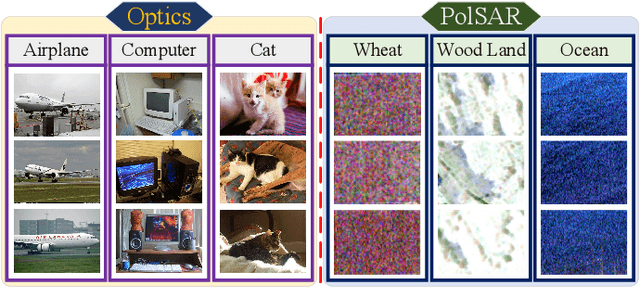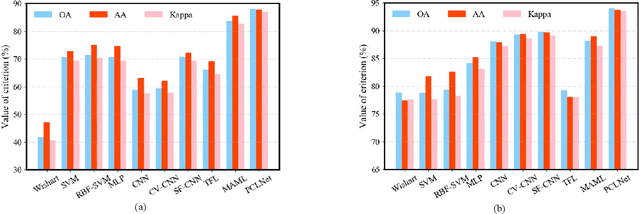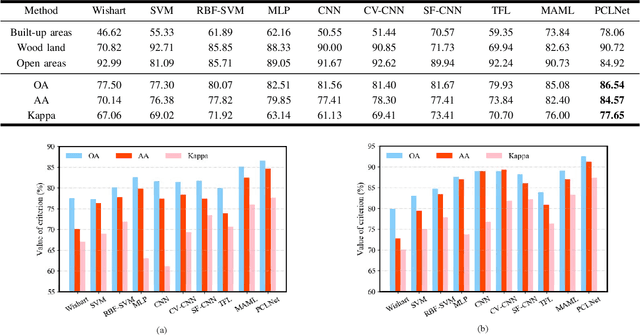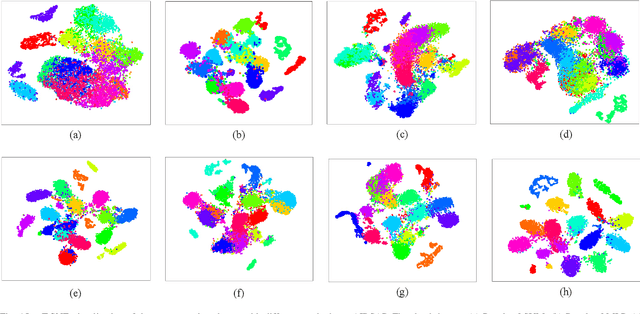PCLNet: A Practical Way for Unsupervised Deep PolSAR Representations and Few-Shot Classification
Paper and Code
Jun 27, 2020



Deep learning and convolutional neural networks (CNNs) have made progress in polarimetric synthetic aperture radar (PolSAR) image classification over the past few years. However, a crucial issue has not been addressed, i.e., the requirement of CNNs for abundant labeled samples versus the insufficient human annotations of PolSAR images. It is well-known that following the supervised learning paradigm may lead to the overfitting of training data, and the lack of supervision information of PolSAR images undoubtedly aggravates this problem, which greatly affects the generalization performance of CNN-based classifiers in large-scale applications. To handle this problem, in this paper, learning transferrable representations from unlabeled PolSAR data through convolutional architectures is explored for the first time. Specifically, a PolSAR-tailored contrastive learning network (PCLNet) is proposed for unsupervised deep PolSAR representation learning and few-shot classification. Different from the utilization of optical processing methods, a diversity stimulation mechanism is constructed to narrow the application gap between optics and PolSAR. Beyond the conventional supervised methods, PCLNet develops an auxiliary pre-training phase based on the proxy objective of contrastive instance discrimination to learn useful representations from unlabeled PolSAR data. The acquired representations are transferred to the downstream task, i.e., few-shot PolSAR classification. Experiments on two widely used PolSAR benchmark datasets confirm the validity of PCLNet. Besides, this work may enlighten how to efficiently utilize the massive unlabeled PolSAR data to alleviate the greedy demands of CNN-based methods for human annotations.
 Add to Chrome
Add to Chrome Add to Firefox
Add to Firefox Add to Edge
Add to Edge